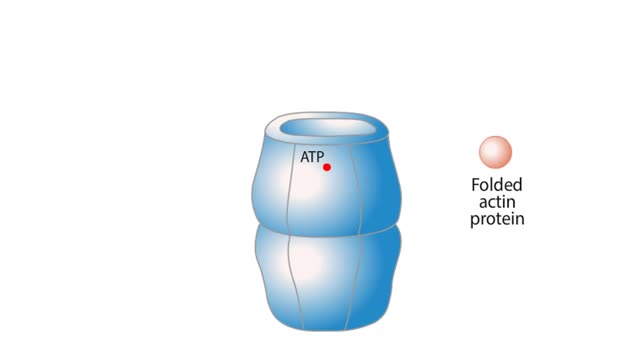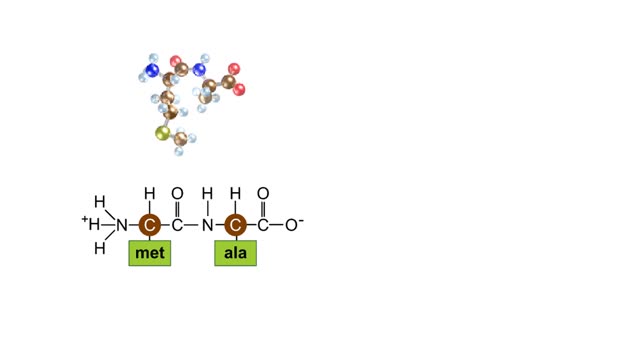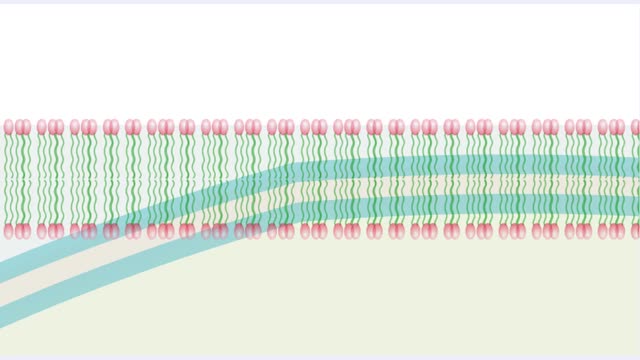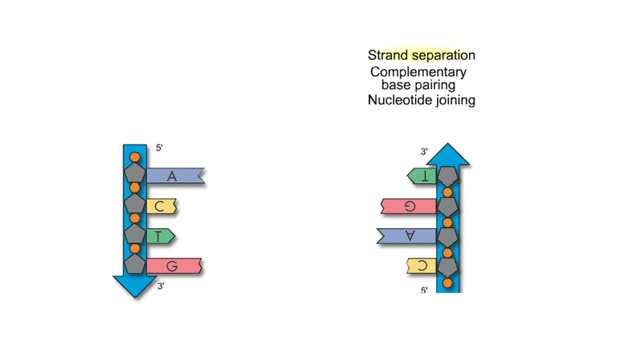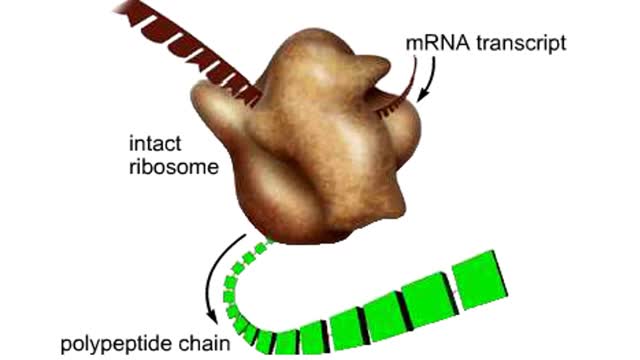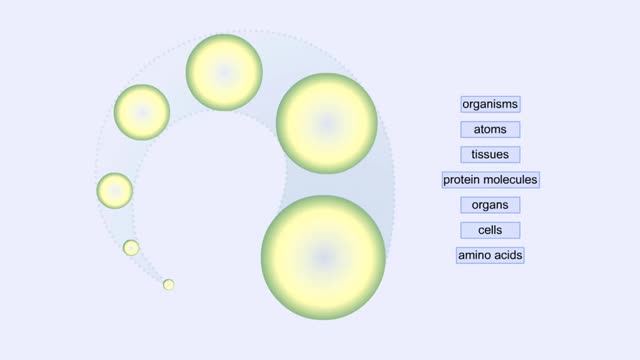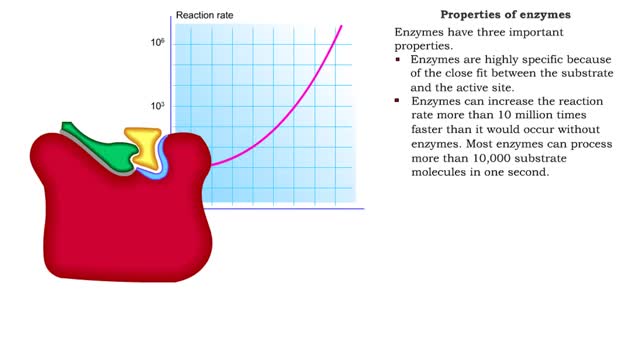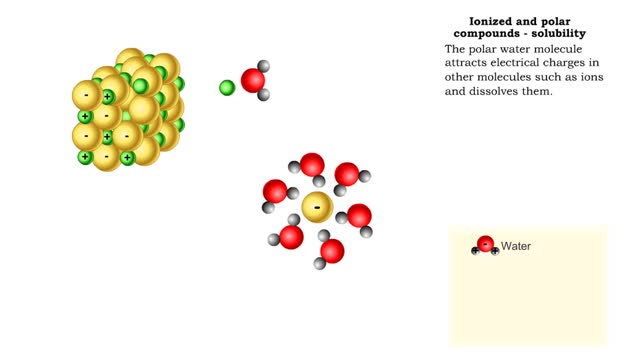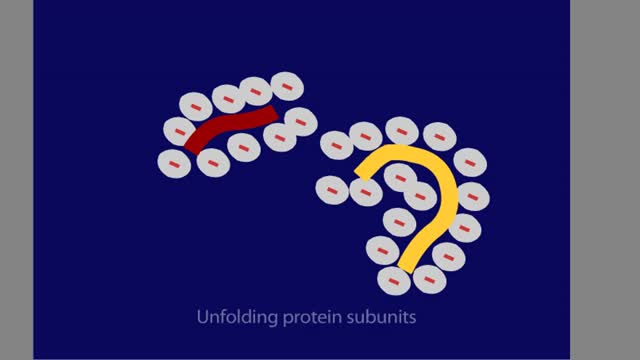Search Results
Results for: 'protein's tertiary structure'
By: HWC, Views: 10507
The life cycle of a typical protein begins with its synthesis on a ribosome. As the polypeptide chain grows, molecules of a chaperone protein bind along its length. This prevents misfolding of the nascent polypeptide. ATP binding causes chaperone release. For most proteins, the polypeptide th...
Peptide Bond Formation Animation
By: HWC, Views: 4650
During protein synthesis, peptide bonds link amino acids together in the order specified by DNA instructions. In this case, the first two amino acids in the protein are methionine and alanine. Here are ball-and-stick models of these amino acids. Peptide bond formation is a type of condensatio...
Molecules, Membrane Permeability and Structure
By: HWC, Views: 10355
Organisms are not isolated system at equilibrium and need to intake nutrients and electrolytes as remove wastes. Similarly Cells within an organism must also exchange compound by passing them through membrane. The permeability of a membrane is the rate of passive diffusion of molecules th...
Subunits of DNA And Semi Conservative Replication
By: HWC, Views: 7209
Adenine is a purine with a double-ring structure. In double-stranded DNA, adenine base-pairs with thymine. Guanine is a purine with a double-ring structure. In double-stranded DNA, guanine base-pairs with cytosine. Thymine is a pyrimidine with a single-ring structure. In double-stranded DNA, th...
By: HWC, Views: 7743
The structure and function of the mammalian ribosome. The mammalian ribosome consists of two subunits, one small and one large. Each subunit is assembled in the nucleus from rRNA and structural proteins. Once assembled, the ribosomal subunits are shipped separately to the cytoplasm. ...
Proteins Defined, Hierarchy & Composition of Cells
By: HWC, Views: 10358
Proteins are long chains of amino acids linked together by peptide bonds. Together with the other three biological macromolecules—carbohydrates, lipids, and nucleic acids—proteins are the building blocks of cells. Proteins are the most complex and abundant biological macromolecules in cel...
Enzyme structure - Properties of enzymes
By: HWC, Views: 10839
■ Enzymes are proteins that catalyze reactions. ■ Some enzymes have two parts: a protein or apoenzyme and a non-protein or cofactor. ■ Cofactor can be a metal ion or another organic molecule called a coenzyme. ■ Coenzymes often come from vitamins. ■ Cofactors affect the shape of...
Properties of water -structure of water and polarity (Ionized and polar compounds)
By: HWC, Views: 11024
■ Water transports most of the molecules in the body. ■ The structure of a water molecule allows it to dissolve other molecules. ■ Shared electrons spend more time near the oxygen atom. ■ Oxygen end has a partial negative charge. ■ Hydrogen ends have a partial positive charge....
Power Supply Polyacrylamide Gel Protein Sample
By: HWC, Views: 10167
SDS-polyacrylamide gel electrophoresis is a powerful tool, which resolves proteins according to their molecular weights. Because proteins differ in size, shape, and charge, a protein sample is first denatured with the anionic detergent SDS. When the sample is heated, the SDS molecules bind to ...
Advertisement



